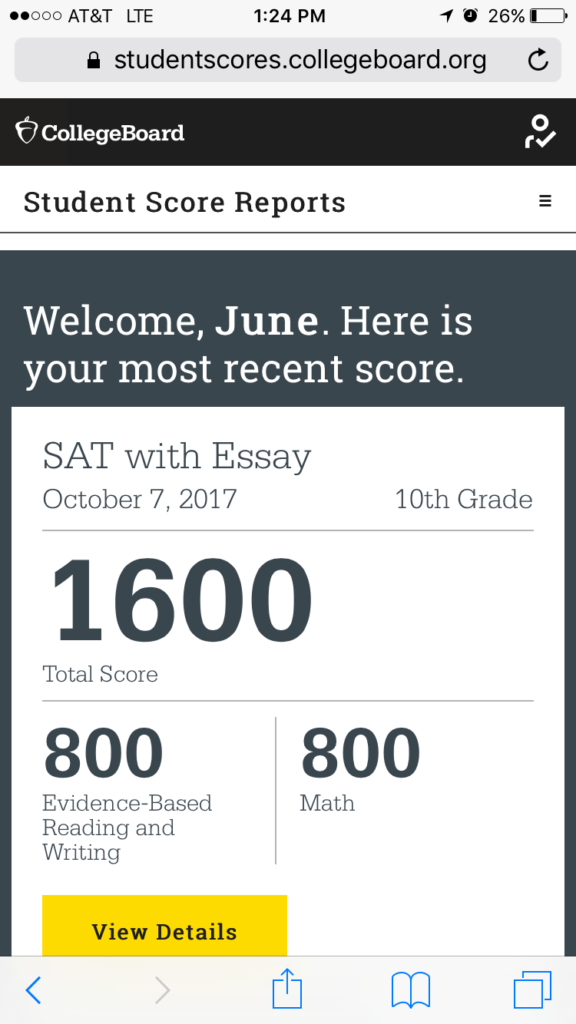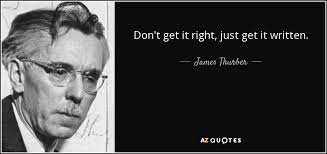Thomas was shy, didn’t want to give a valedictory speech. So, he deliberately enrolled in “only” five advanced placement courses as a senior, allowing some of his peers to get “ahead” of him by taking six APs. Tommy was graduated fourth in his class thereby, mission accomplished. Somebody else got to stand up and spout platitudes in front of the 900-something graduates and their families.
Tommy was also embarrassed about his perfect score on the SAT. There are almost two million test takers each year of whom only a few hundred score 1600. Having counseled a few of these 800-800 students over the decades, I believe strongly that were they all to take some otherworldly more esoteric exam, Tommy would score at the top of that assessment as well. Nice kid. No ego. Just absurdly good at school stuff. Off the proverbial charts.
But unable to write his college essays.
Utterly and completely stuck. Staring at a blank screen hour after hour, day after day. Not being used to failure, his inability to come up with 500 words must have been especially grating.
“Some students have a background, identity, interest, or talent that is so meaningful they believe their application would be incomplete without it. If this sounds like you, then please share your story.”
Nope. Nothing. Not a paragraph. Not an idea of how to start. Not a thought about anything he wanted to write about. Ironic in that in his spare time he was building robots, reading voraciously, and learning the names of every fresh water fist in the United States. Seriously. He was un-stumpable. Show him a picture of a fish and he could tell you the name. Crazy.
“Share an essay on any topic of your choice. It can be one you’ve already written, one that responds to a different prompt, or one of your own design.”
Again, nothing. Tommy could write exemplary essays for AP History. He routinely turned in letter-perfect essays for English. But the common application prompts had him befuddled.
He’s not ready for college, a relative suggested. If he can’t write an admissions essay, how can he survive in first-year composition? Every top college requires a composition course. He won’t do well in college; he should not go.
Which brings us to the question of “Before and After,” my favorite Jeopardy category:
“Horse racing’s biggest trio of events that the queen only wears on special occasions.”
Wait for it.
Triple crown jewels.
Here are a few more from a recent episode of Jeopardy. Answers at the end of the essay.
“Night sack for a snoozing boy scout that’s the set of skills available to someone like a musician.”
“Celestial body of extremely intense gravity that scores an ace in golf.”
“Snoopy’s owner who’s a large forest-dwelling ursine creature.”
But I digress.
The question is whether a student has to learn this before being allowed to study that. Surely it would be tough to understand that eight minus six is two without first being completely comfortable with six plus two is eight. And differential equations makes no sense without a firm understanding of calculus. But extrapolating that Tommy can’t succeed in a college English class because he can’t write an admission essay? Tommy has already proven repeatedly that he is a beast in the classroom—four years of straight A grades, 1600 on his SAT.
I helped Tommy with his admission essay. Here’s what I did: I invited Tommy into my office and sat him down with his laptop. I told him that “perfect is the enemy of good” and “don’t get it right, just get it written.” I didn’t address the absurd suggestion that he “wasn’t college material” because he was having trouble with the essay. An hour later, Tommy had written a perfectly acceptable if not particularly brilliant or insightful essay.
Subsequently, Tommy was admitted to and was graduated from Wesleyan University in Connecticut and went on to earn a Ph.D. in computer science at Cornell. He now works at one of those techie places where there are air hockey tables, restaurants, and swimming pools on site, and where he can drop off his laundry. He makes boatloads of money and is happy with a job where all he has to do is sit around and think—and where he never has to consider whether he has a “background, identity, interest, or talent that is so meaningful [that his] application would be incomplete without it.”
I’m pretty pleased with Tommy’s success and contentment. I’m glad to have been some small part of helping him along his path. Which brings me to my final Before and After for this week:
Bill Gates’s tech giant where Tommy works and what you would have to be to deny this kid the opportunity to go to college and excel.
Microsoft in the head.
What are we doing as parents to hold back our children? What stumbling blocks are we placing in their way? Are we suggesting that our kids have to do this before they can do that? If so, would now be a good time to get out of their way?
Sleeping bag of tricks
Black hole in one
Charlie Brown bear.







